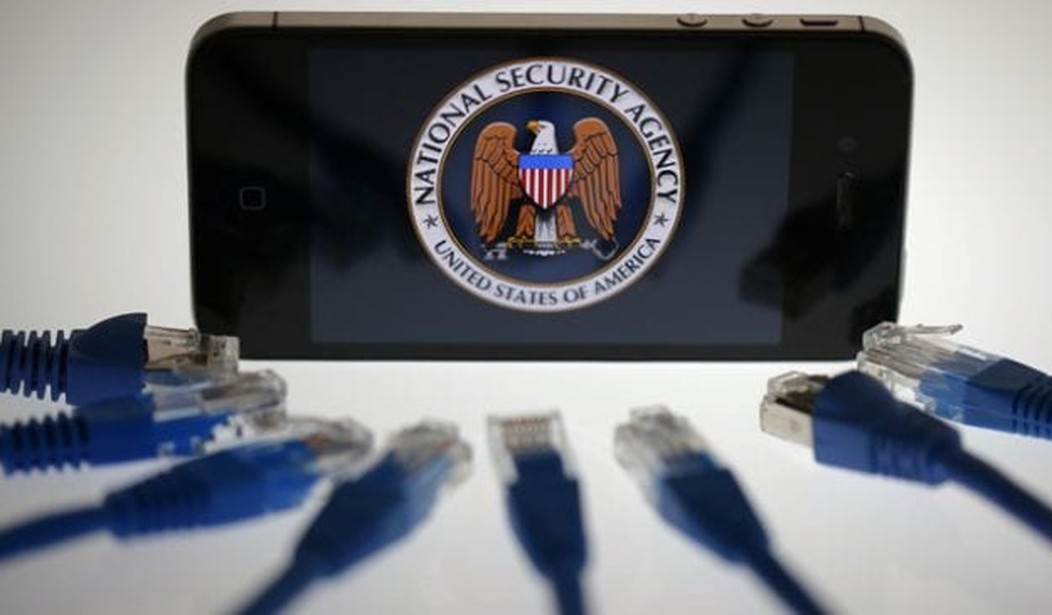WASHINGTON – National Security Agency (NSA) Chief Gen. Keith Alexander told lawmakers last week his agency once conducted tests to assess whether its systems could handle tracking Americans’ cell phone locations and warned them of the government shutdown’s impact on national security.
Alexander and James Clapper, director of National Intelligence (DNI), testified before the Senate Judiciary Committee on proposed reforms to the NSA’s surveillance of phone and Internet usage around the world, exposed by former NSA analyst Edward Snowden.
Americans learned for the first time this summer that Section 215 of the Patriot Act has for years been secretly interpreted to authorize the collection of Americans’ phone records. The American public also learned more about the government’s collection of Internet content data using Section 702 of the Foreign Intelligence Surveillance Act (FISA), which covers Internet communications. Section 702 allows the attorney general and director of national intelligence, for a period of up to one year, to engage “in the targeting of persons reasonably believed to be located outside the United States to acquire foreign intelligence information.”
“When you have all these revelations, it’s no surprise the intelligence community faces a trust deficit. And after years of raising concerns about the scope of FISA authorities… I’m glad that many members of Congress in both parties are now interested in taking a close look at these programs and both the government’s legal and policy justifications for them,” said the committee’s chairman Patrick Leahy (D-Vt.).
Congress is considering changes to FISA, and other surveillance authorities, that some believe grant the NSA too much freedom in gathering U.S. data as part of spying on targets abroad.
Leahy is urging a complete review by the intelligence community’s inspector general of the government’s use of Section 215 and Section 702. The senator is working on a comprehensive legislative solution with Rep. Jim Sensenbrenner (R-Wis.), the chairman of the House Crime and Terrorism Subcommittee, that aims to address the two sections and a range of surveillance authorities that raise similar concerns.
But the panel did not discuss any proposed reforms in length. Instead, the hearing focused on potential abuses that have become known since the Snowden scandal, and the impact of the government shutdown on U.S. intelligence agencies.
Clapper warned the dangers and threats to the nation become “cumulative,” as “the jeopardy increases” each day the government shutdown goes by.
“This affects our global capability to support the military, to support diplomacy, and to support our policymakers. And the danger here, of course, that this will accumulate over time – the damage will be insidious,” he said.
Responding to the inquiries from lawmakers about his policy for furloughs, Clapper said the intelligence community based its decision on a law that characterizes intelligence staff as essential if they are “necessary to protect against imminent threat to life or property.”
He added that the intelligence agencies furloughed roughly 70 percent of personnel, which he thinks will change if the shutdown continues.
Sen. Chuck Grassley (R-Iowa) wondered whether Clapper was overstating his claims. He asked how bad things could be if that number of employees could be deemed as “nonessential” under the furlough guidelines.
“You either need better lawyers,” Grassley said, referring to the legal advisers who determined that 70 percent of employees were not essential, “or need to make changes in your workforce.”
Alexander echoed Clapper’s remarks and lamented putting on furlough the NSA’s “amazing workforce.”
“We have over 960 PhDs, over 4,000 computer scientists, over 1,000 mathematicians,” he said, adding, “our nation needs people like this, and the way we treat them is to tell them, ‘You need to go home, because we can’t afford to pay you.’”
Alexander denied a recent New York Times report that said the NSA is analyzing social networks, tax records, voter registration records, and other personal information to create sophisticated profiles of some Americans.
The report also detailed 12 previously revealed cases of abuse by NSA employees who used the network for unsanctioned missions like spying on love interests.
He said all employees involved in these violations faced disciplinary actions.
On Wednesday, the Justice Department responded to petitions from major U.S. Internet companies to publish the number of national security data requests. The Justice Department said in a 33-page brief that the government agreed to publish an annual report, including a total number of requests under FISA. Nevertheless, this data will not be broken down on a company basis because it could provide “adversaries with a roadmap to the existence or extent of government surveillance.”
Clapper reiterated these concerns at the hearing. He said the U.S. government could publish the number of total surveillance requests it makes annually to companies, but more detailed information on a company-by-company basis would give “adversaries and terrorists, the prerogative of shopping around for providers that aren’t covered.”
He also acknowledged that the NSA had experimented with so-called locational data in 2010 to 2011, saying the data was never used for intelligence analysis purposes. Privacy advocates argue such information is far more useful to tracking an individual’s activities than listening in on conversations, because the phone’s location is recorded even when it is not in use.
The previous week, Sen. Ron Wyden (D-Ore.) grilled Alexander about locational data during an Intelligence Committee hearing. When Wyden insisted on getting an answer, Alexander read a prepared statement in which he declined to respond to the senator’s question in open session.
At the latest hearing, Alexander again read a prepared statement denying the NSA was collecting locational data under the Patriot Act, but acknowledged that “NSA received samples in order to test the ability of its systems to handle the data format.”
Revelations by Snowden have focused attention primarily on Sections 215 and 702, but other intelligence collection programs outside of FISA function under the guidelines of Executive Order 12333, which according to Sen. Dianne Feinstein (D-Calif.) authorizes the collection of intelligence information outside of FISA.
“Although there has been substantial attention paid to FISA, other intelligence collection programs outside of FISA function under the guidelines of Executive Order 12333, which do not mandate the same protections for U.S. person privacy and oversight as does FISA,” Feinstein said last month during the Intelligence Committee hearing.
Alexander made clear last week that the NSA separates carefully programs authorized under Sections 215 of the Patriot Act and 702 of FISA, and those authorized under Executive Order 12333.
He said the 12 incidents of abuse by NSA employees occurred under Executive Order 12333 and not under 215 or 702.









Join the conversation as a VIP Member